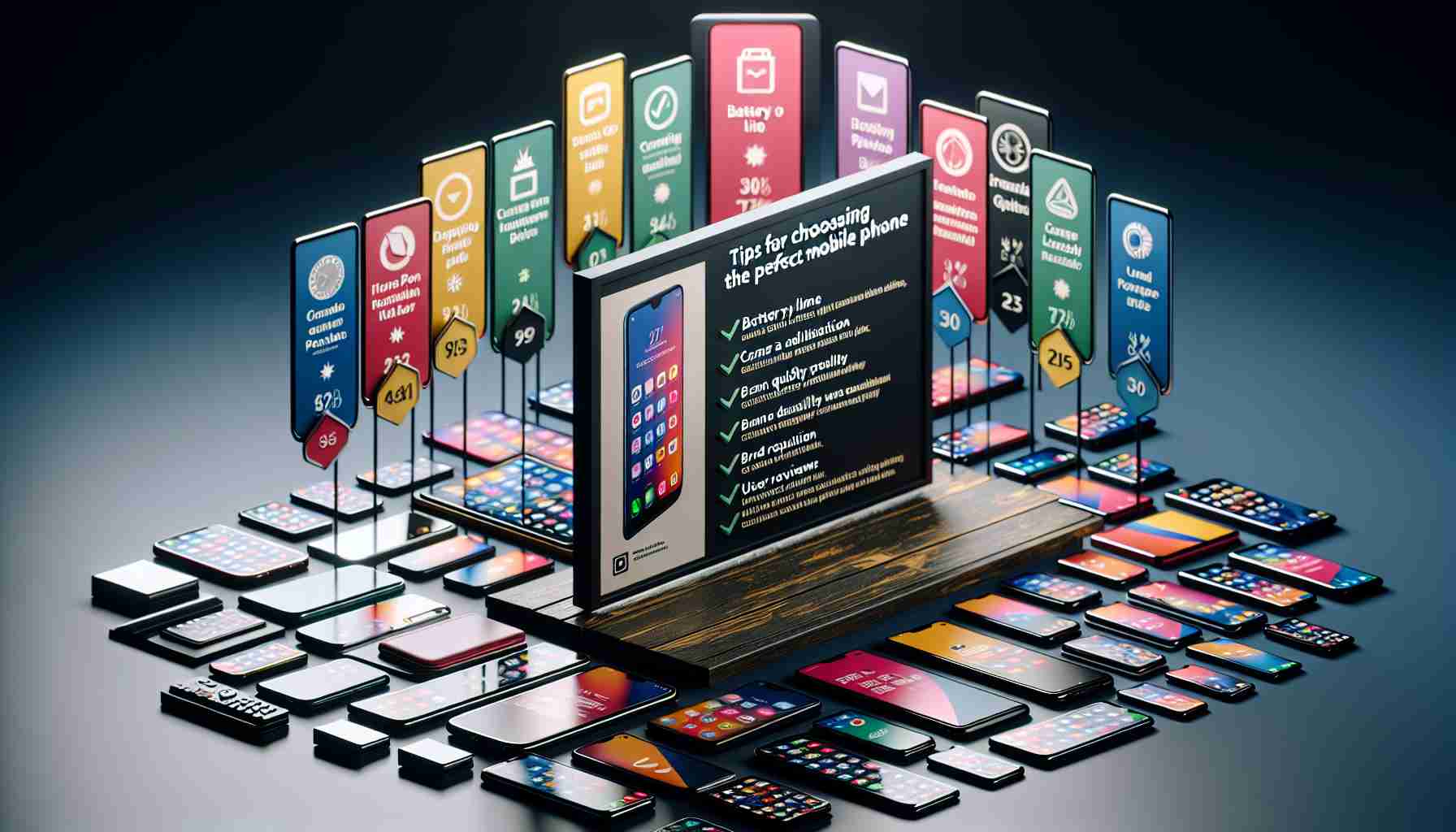Setting Your Budget: Before embarking on the journey of purchasing a new mobile phone, it is crucial to establish a clear budget. With a wide range of models available on the market, from budget-friendly options to premium flagships, setting a budget will help you narrow down your choices and avoid overspending.
Assess Your Needs: Consider how you use your phone on a daily basis. Whether you are passionate about photography, gaming, or simply need a device for everyday tasks, aligning your needs with the features of the phone is essential. Choose a phone with a high-quality camera, powerful processor, ample RAM, or long-lasting battery based on your priorities.
Research Reviews and Comparisons: Instead of relying on traditional guidelines, delve into online reviews and comparisons to gather valuable insights on the performance and reliability of various models. Users and experts often share detailed experiences, highlighting the strengths and weaknesses of different phones. This information will guide you towards making an informed decision.
Confirm Network Compatibility: Overlooked by many buyers, verifying the compatibility of the phone with your mobile network is crucial. Not all phones operate seamlessly on all networks, especially if purchased internationally or from third-party sellers. Ensure that the model you choose aligns with your network’s frequencies and standards to avoid connectivity issues.
Hands-On Testing: Whenever feasible, visit a physical store to test the phone before making a purchase. Evaluate how it feels in your hand, the responsiveness of the touchscreen, the speed of the operating system, and the camera quality. Conducting these tests will provide a clearer picture of what to expect from the phone in your day-to-day usage.
Consider the Long-Term Software Support: When choosing the perfect mobile phone, it is important to also consider the long-term software support provided by the manufacturer. Different companies have varying policies when it comes to releasing software updates for their devices. Opting for a phone from a manufacturer known for providing timely and regular updates can ensure that your device remains secure and up-to-date with the latest features for a longer period.
Storage Capacity and Expandability: Another crucial factor to take into account is the storage capacity of the phone. Depending on your usage, you may require ample internal storage to accommodate apps, photos, videos, and other data. Moreover, some phones offer expandable storage options through microSD cards, allowing you to increase the available space as needed. Consider your storage needs and preferences before making a decision.
Privacy and Security Features: In an age where personal data privacy and security are paramount, it is beneficial to look into the privacy and security features offered by the mobile phone. Features such as biometric authentication (fingerprint or facial recognition), app permissions control, secure enclave for sensitive data, and regular security updates can enhance the overall safety of your device and data.
Environmental Impact: With increasing awareness about sustainability and environmental impact, many consumers are now considering the eco-friendliness of the products they purchase. Some mobile phone manufacturers are incorporating recycled materials, reducing packaging waste, and implementing energy-efficient practices in their production processes. Choosing a phone from a company that prioritizes environmental responsibility can align with your values and contribute to sustainability efforts.
Key Questions and Answers:
– What operating system do you prefer? The choice between iOS and Android can significantly impact your overall user experience and available app ecosystem.
– Do you prioritize camera quality or battery life? Depending on your usage patterns, you may need to weigh the importance of a powerful camera versus a long-lasting battery.
– Are you open to purchasing used or refurbished phones? Opting for a pre-owned device can offer cost savings, but it is essential to ensure the device’s condition and warranty coverage.
Advantages and Disadvantages:
When it comes to choosing the perfect mobile phone, some advantages include tailored features to meet your specific needs, the convenience of connectivity and communication, and enhanced productivity through apps and services. However, potential disadvantages may include high costs for premium models, constant evolution leading to rapid obsolescence, and the risk of data security breaches if not adequately protected.
For additional information on mobile phone trends, reviews, and comparisons, you can visit the GSMArena website which offers comprehensive insights into the latest devices and technologies in the mobile industry.



















